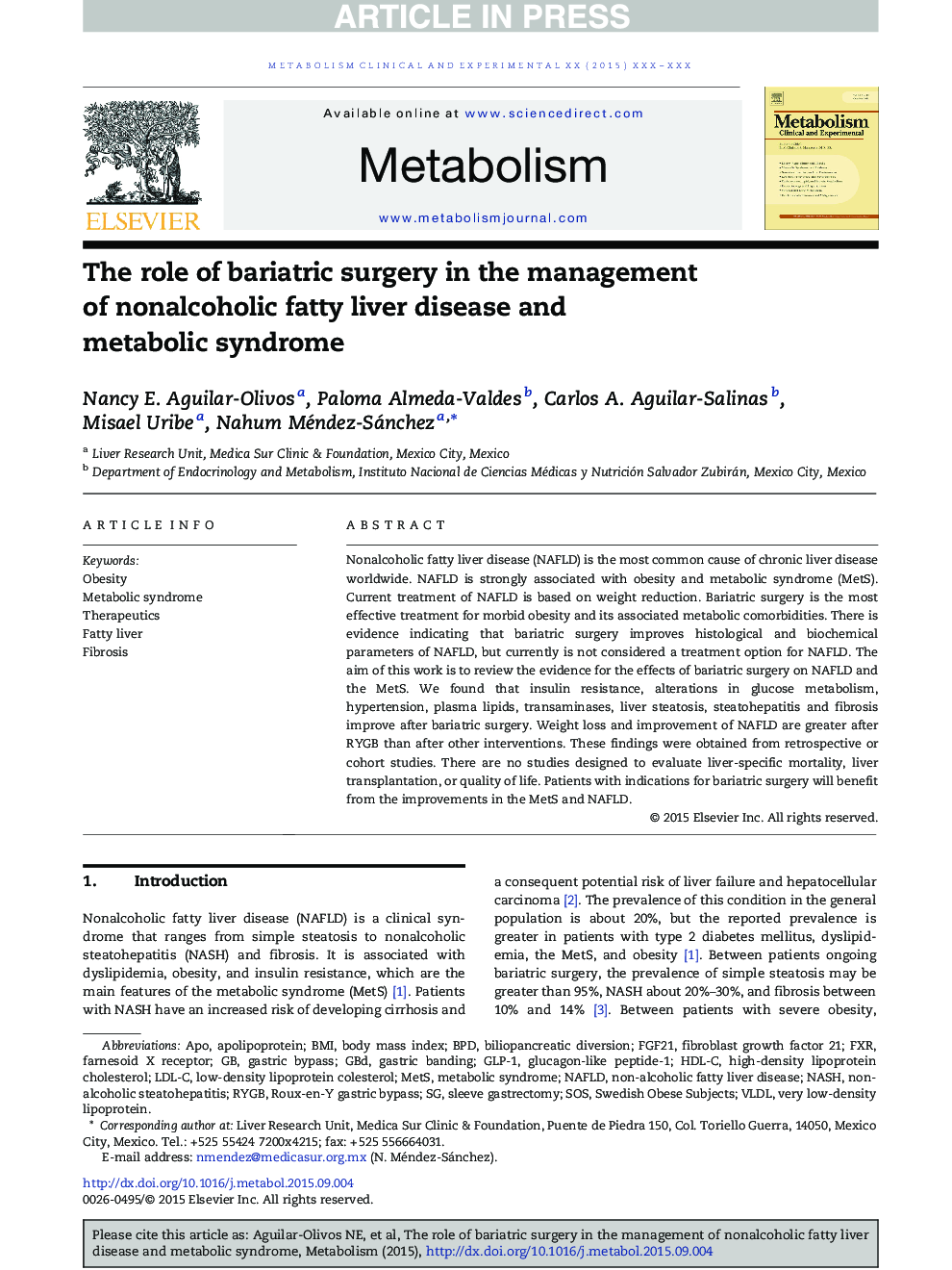| Article ID | Journal | Published Year | Pages | File Type |
|---|---|---|---|---|
| 5903006 | Metabolism | 2016 | 12 Pages |
Abstract
Nonalcoholic fatty liver disease (NAFLD) is the most common cause of chronic liver disease worldwide. NAFLD is strongly associated with obesity and metabolic syndrome (MetS). Current treatment of NAFLD is based on weight reduction. Bariatric surgery is the most effective treatment for morbid obesity and its associated metabolic comorbidities. There is evidence indicating that bariatric surgery improves histological and biochemical parameters of NAFLD, but currently is not considered a treatment option for NAFLD. The aim of this work is to review the evidence for the effects of bariatric surgery on NAFLD and the MetS. We found that insulin resistance, alterations in glucose metabolism, hypertension, plasma lipids, transaminases, liver steatosis, steatohepatitis and fibrosis improve after bariatric surgery. Weight loss and improvement of NAFLD are greater after RYGB than after other interventions. These findings were obtained from retrospective or cohort studies. There are no studies designed to evaluate liver-specific mortality, liver transplantation, or quality of life. Patients with indications for bariatric surgery will benefit from the improvements in the MetS and NAFLD.
Keywords
Swedish Obese SubjectsNAFLDRYGBFGF21VLDLGBDLDL-CFXRBPDHDL-CGLP-1SOSfarnesoid X receptorRoux-en-Y gastric bypassapoapolipoproteinNon-alcoholic steatohepatitisBiliopancreatic diversiongastric bandingGastric bypassnon-alcoholic fatty liver diseaseTherapeuticsMetabolic syndromebody mass indexBMIfibroblast growth factor 21Fibrosisvery low-density lipoproteinhigh-density lipoprotein cholesterolMETSObesityNash glucagon-like peptide-1Fatty liverSleeve gastrectomy
Related Topics
Life Sciences
Biochemistry, Genetics and Molecular Biology
Endocrinology
Authors
Nancy E. Aguilar-Olivos, Paloma Almeda-Valdes, Carlos A. Aguilar-Salinas, Misael Uribe, Nahum Méndez-Sánchez,
